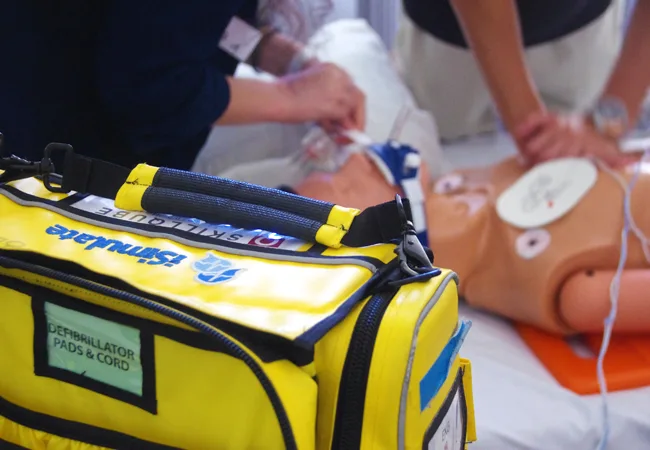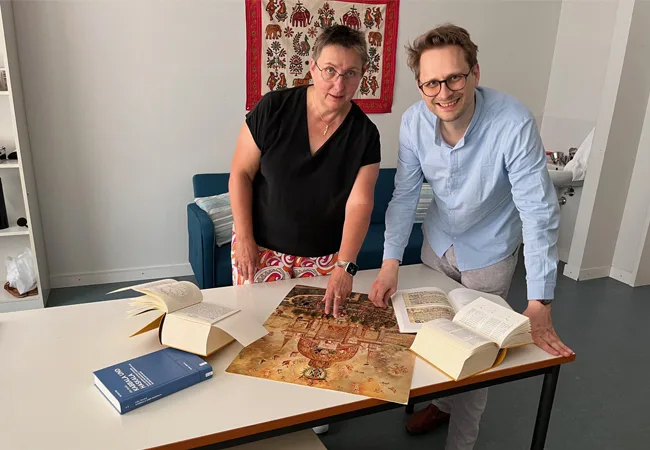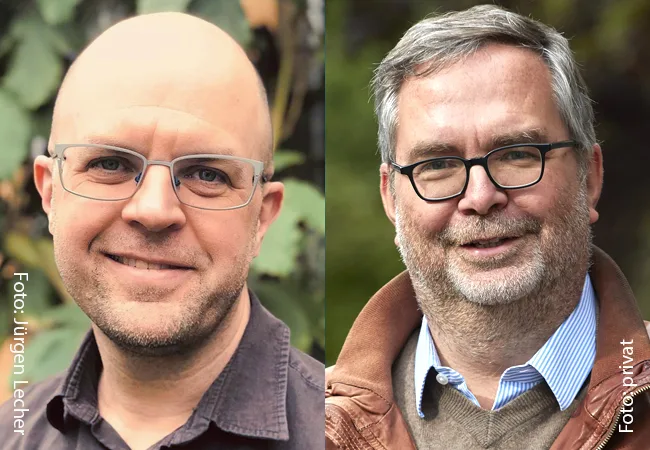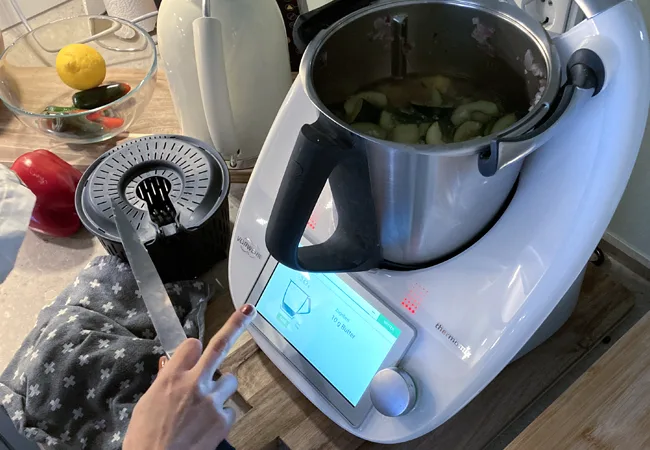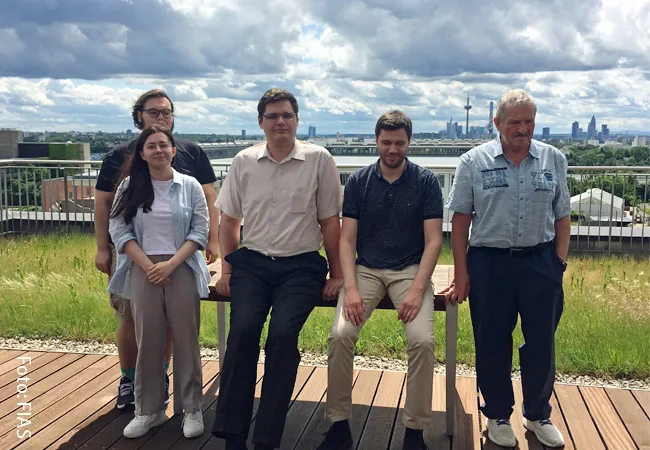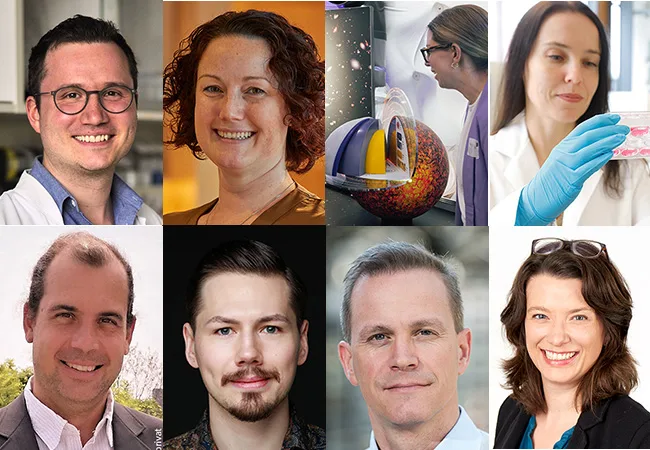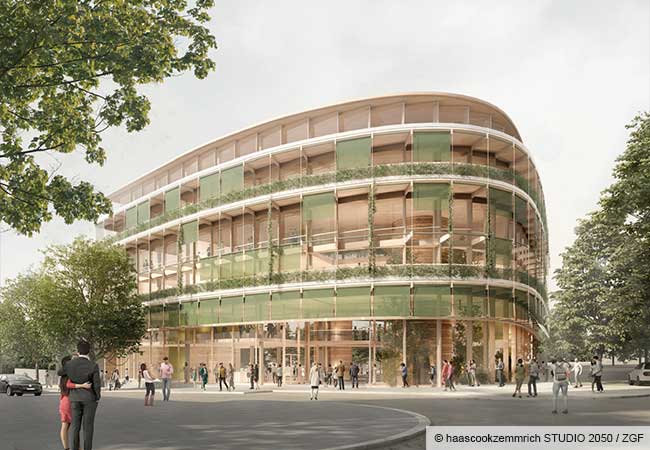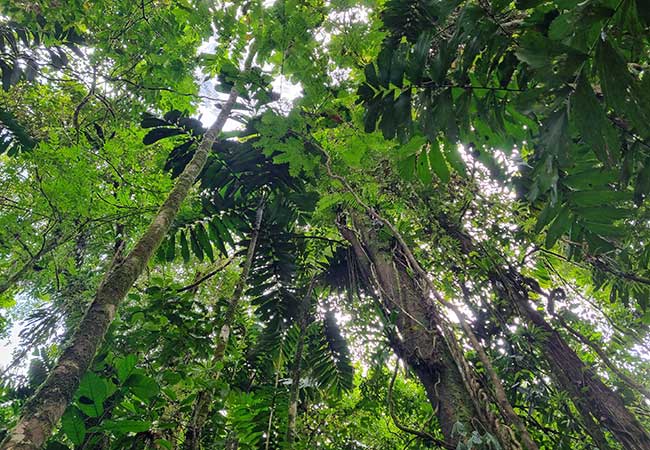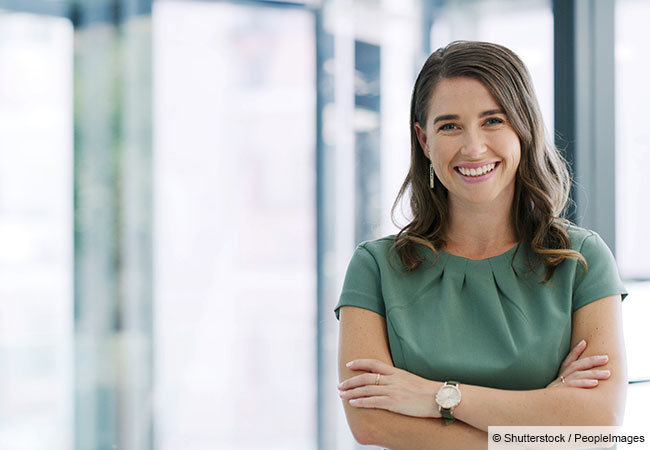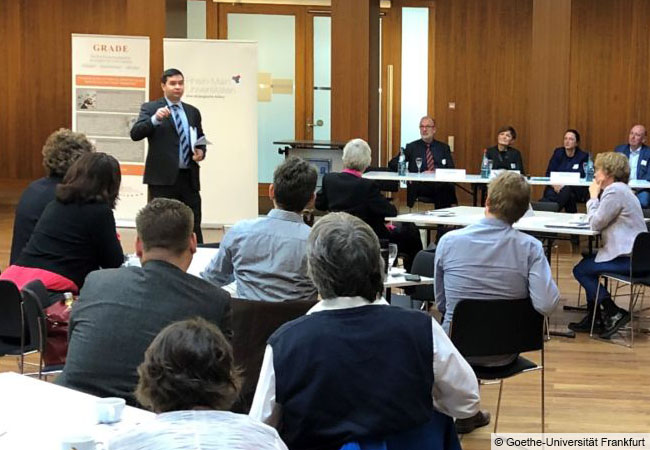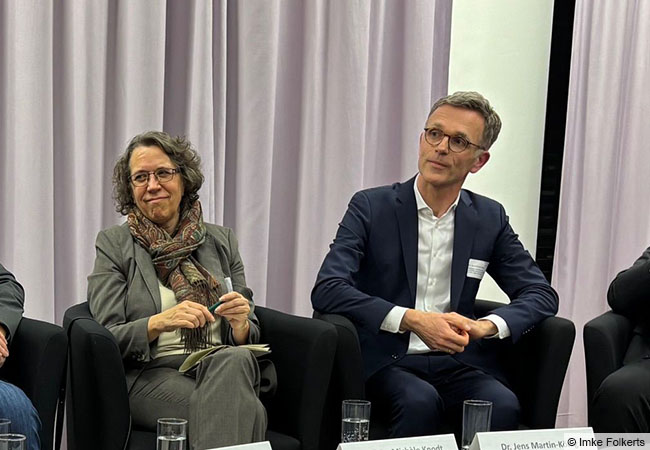Since it first began its work in the summer of 2022, the five-member team of Goethe University Frankfurt’s Sustainability Office has initiated numerous processes related to transforming Goethe University into a sustainable university.
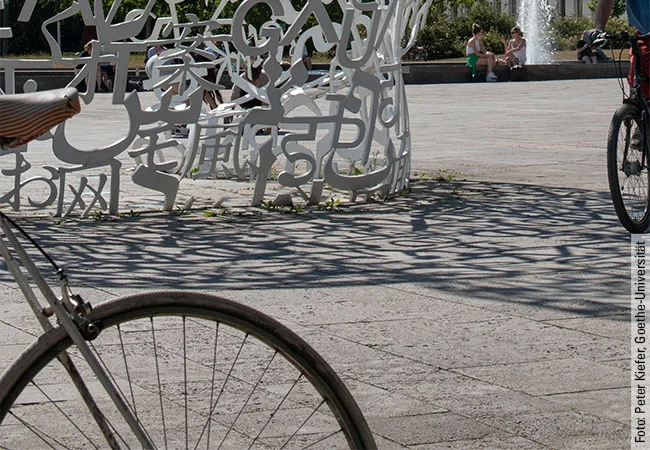
The challenges of overcoming global ecological crises and achieving social justice, summarized in the term sustainability, are the subject of much academic work conducted at Goethe University. At the same time, the impact of the university’s own research and teaching activities on social, ecological and economic processes also needs to be reflected and discussed. That is why the Executive Board has defined the „development of Goethe University into a sustainable university“ as one of twelve strategic action areas, on which the university will work in the coming years. With a view to both coordinating and at the same time also intensifying Goethe University’s contribution to the socio-ecological transformation, the Sustainability Office has been working since summer 2022 to anchor principles of sustainability in research, teaching, transfer, operations and governance. The work of the Sustainability Office is reflected in both small and large processes and projects in which the university community is actively involved. Here is an up-to-date overview of the Sustainability Office’s work.
GOVERNANCE / Our understanding of sustainability
How do we as a university define sustainability? The answer to that question will be developed by a cross-status group of experts appointed by the Senate, who, together with the President and the Sustainability Office, will create a draft understanding of sustainability at Goethe University. The result will form the basis for effective cooperation between university actors in the process of developing the university’s sustainability strategy, and will serve as an internal and external reference point: Goethe University takes responsibility when it comes to sustainability.
Our sustainability strategy
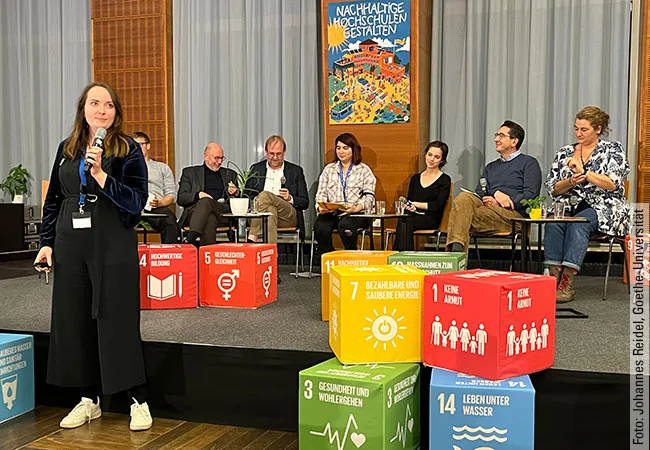
How can we make the university more sustainable? The answers to that question will emerge out of the university-wide process for developing a sustainability strategy, which will start in early 2024. Key associated processes will focus on developing an understanding of sustainability, establishing greenhouse gas balancing and setting up a mobility strategy. University members can contribute their ideas in the areas of research, teaching, transfer, operations and governance in sustainability workshops. The sustainability strategy will be divided into strategic and operational goals and measures, and will show concrete solutions on how to operate as a sustainable university.
OPERATIONS / Greenhouse gas balancing and climate protection concept
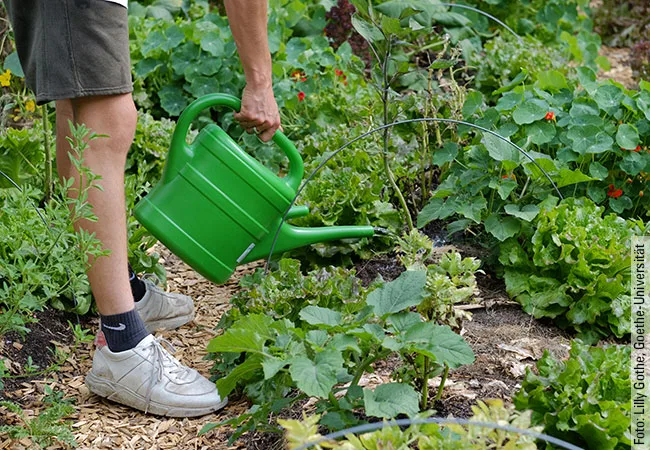
How much greenhouse gas do the university’s research and teaching operations generate? In offering an overview, the main aim of the greenhouse gas balance is first and foremost to create transparency. Together with the technical expertise of environmental consultancy Arqum GmbH and in accordance with the Greenhouse Gas Protocol (GHG), the university’s Scope 1-3 greenhouse gas emissions are to be recorded by mid-2024. Not only will the results show both direct and significant indirect emissions, thereby enabling a realistic look at the environmental impact of university operations. They can also be used to identify potential for reducing emissions. Developing targets and measures based on these insights in turn forms the basis for a climate protection concept, which reflects the sustainability strategy’s operational part.
Mobility strategy
Whether by bicycle, subway or car – every day thousands of students and employees find their way to one of Goethe University’s five locations. Over the course of a year, a group of students and representatives from the various campuses and administrative units, supported by the „Besser zur Arbeit“ [Better to Work] program of the ivm Gesellschaft für Integriertes Verkehrs- und Mobilitätsmanagement [Society for Integrated Traffic and Mobility Management], will develop measures and offers for the university. These will result in a mobility concept specifically tailored to Goethe University, intended to promote the use of environmentally friendly means of transport on the way to university, on business trips and on short- to medium-haul stays abroad.
Indicator development and sustainability reporting
Goethe University is one of 24 pilot universities in the University Sustainability Indicator Monitoring System (UNISIMS) project led by TU Dresden, and is involved in developing and defining a catalog of indicators to design a web-based sustainability assessment system. The project makes sustainability developments measurable along all university fields of action. The indicators will also be incorporated into Goethe University’s sustainability strategy and form the basis for future sustainability reporting.
STUDIES / Education for sustainable development (ESD)
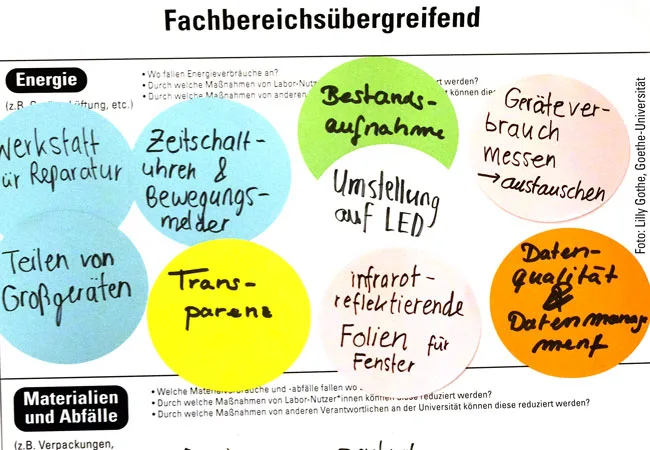
Goal 4.7 (Education for sustainable development and global citizenship) of the United Nations Sustainable Development Goals stipulates that all learners be able to acquire the knowledge and skills needed to promote sustainable development. Goethe University is increasingly anchoring sustainability in its teaching. For example, aspects of sustainability are being incorporated into the process of developing a mission statement on teaching [Leitbild Lehre], and the potential for ESD is being explored in the strategic alliance of Rhein-Main Universities (RMU) and the Hessian university environment. In addition, the project „Goethe Teaches Sustainability“ creates a cross-subject accompanying „Certificate in Sustainability“ for students with an interdisciplinary lecture series (more information, in German, is available at tinygu.de/GTS). Sustainability also stood at the center of the second call for proposals for central 2022 QSL project funds for teaching. This winter semester, employees can learn more about the link between ESD and digitalization as part of an eLearning workshop. The Goethe orientation study program strengthens prospective students’ sense of the social responsibility science assumes in the humanities and natural sciences. As part of the „Initiative Sustainability“, funds were made available in 2023 to implement, among others, ESD project ideas by students for students this winter semester. How ESD can be comprehensively integrated into university teaching is part of the discussions in the sustainability workshops for the development of a sustainability strategy.
GOVERNANCE / University Sustainability Forum
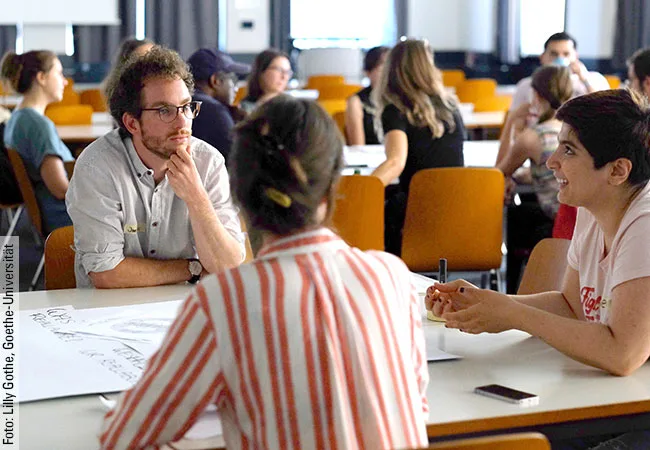
Sustainability also means listening to and learning from each other. In introducing the University Sustainability Forum, the Sustainability Office creates a space for cross-status group exchange, networking, and reflection on sustainability at the university. The topics vary, with each taking a closer look at different sub-aspects. At the first university forum, held in July 2023, participants exchanged ideas on the topic of „Sustainable and transdisciplinary research“, while the second forum, held in late July, dealt with „Sustainable laboratories“. In each case, select experts provide insight into the respective topics. The Sustainability Office processes the results of the forums, and develops them into concrete action guidelines, which are then made available to the university community.
Lilly Gothe, Goethe University Sustainability Office
Would you like to participate in Goethe University’s sustainability process?
Contact us or join our events.
Contact: Goethe University Sustainability Office | nachhaltigkeit@uni-frankfurt.de


